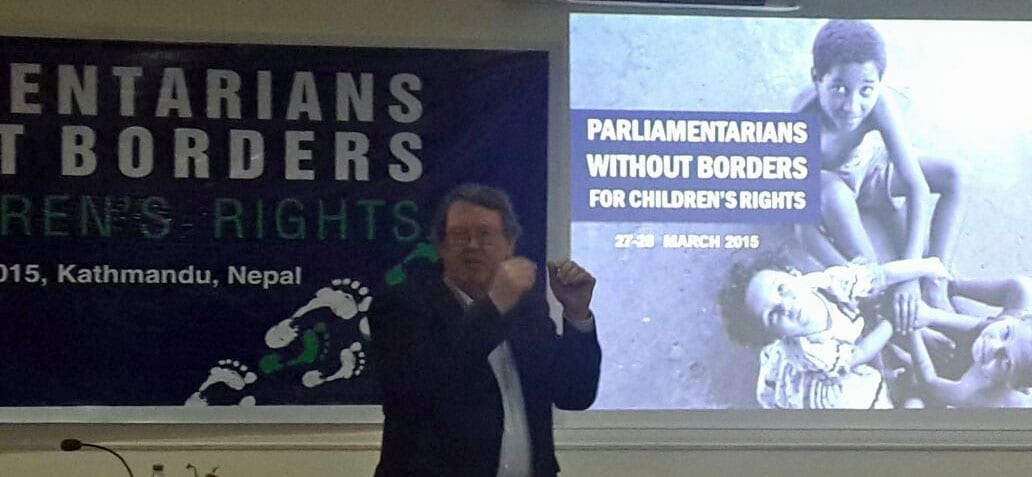Twenty years ago, child labor was the norm in many countries around the world but “today, that is not the case,” said Tim Ryan, Solidarity Center Asia Director. “Child labor is not acceptable. Changing attitudes can be accelerated.”
Ryan spoke yesterday at a gathering of elected lawmakers from Asia and Latin America about the importance of focusing on the abolition of child labor in their parliaments. “Parliamentarians Without Borders for Children’s Rights,” a two-day gathering in Kathmandu, Nepal, drew participants from Afghanistan, Bangladesh, Brazil, India, Nepal, Netherlands, Pakistan, Paraguay and Turkey.
Speaking in his role as North American board member of the Global March Against Child Labor, which sponsored the event, Ryan also pointed out the intrinsic connections between child labor, equitable economic development and promoting healthy democratic societies that work for all citizens.
“It’s incumbent upon you as elected leaders to contribute to that democratic process and be responsive to your constituencies by connecting the issues of child labor, education and decent work for children’s parents.”
He also pointed out connections between the U.S. civil rights movement and Gandhian principles and practices centering on the peaceful self-determination of impoverished citizens seeking economic equality, strategies fundamental to Global March Against Child Labor leader Kailash Satyarthi and his colleagues in combating child labor.
Noting that it takes time to make significant social change, Ryan cited the experience of abolishing slavery in the United States.
“Even after America’s Civil War, it took 100 years for African-American citizens’ rights to be enshrined in law and respected,” said Ryan. “And that fight still isn’t over.”
Ryan addressed the meeting at the invitation of Nobel Prize winner Satyarthi, a long-time Solidarity Center ally.

